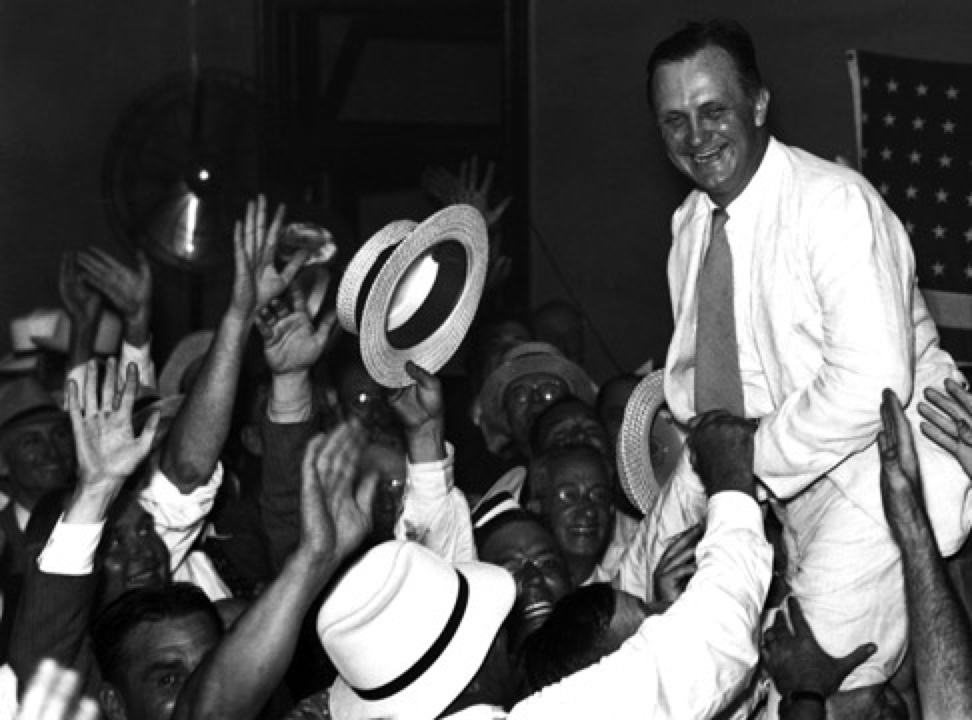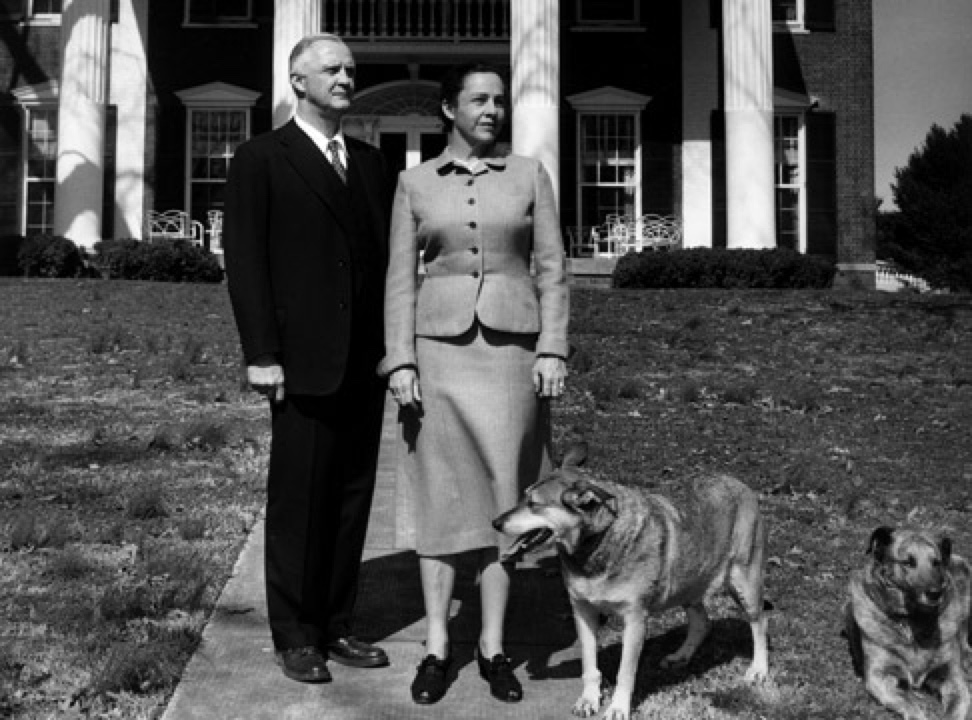Like one of his predecessors in the Virginia governorship, Thomas Jefferson, Colgate Darden was an education governor. His mother a former school teacher and he a former public school student, President Darden came by his interest in public education honestly.
He also served two terms in the Virginia House of Delegates, four terms in the U.S. House of Representatives, and as a delegate to the United Nations. As governor, he opposed the poll tax and tried to write into the state constitution a provision that would ensure an education for every child. Additionally, he worked to increase teacher pay. And because education alone would not improve the quality of life for Virginia citizens, he saw to it that there were full-time health officers in every county. In higher education he made public, albeit segregated, education available to African Americans and women. He completed negotiations to make Mary Washington the women’s division of the University of Virginia, and Radford College, the women’s college affiliated with Virginia Polytechnic Institute. Later, while president of the University he worked to establish a two-year college, Clinch Valley, in educationally underserved southwest Virginia.

Becoming UVA President
To take the top job at the University, Governor Darden turned down a United States Senate seat. The ailing Virginia senator Carter Glass would have stepped down if Mr. Darden had agreed to take his place in the Senate, a position Governor Darden did not want. About his preference to lead the University, he said, “I felt that altering the course of the University of Virginia, if it were possible for me to do so, would be an infinitely better piece of public work than being a member of the United States Senate.” He further explained, “The size and the momentum of the Senate is such that the individual member is considerably restricted. This was not the case at the University of Virginia. The president there had many opportunities, particularly with a fine board such as I had, to improve and experiment.”
At the University, President Darden wanted to continue to create a system of public education for Virginia that would be unified and coherent. “I felt the need was overwhelming to get along a step further with Jefferson’s idea of making the university an integral part of the public school system of Virginia.” He meant the University to be the capstone of the public educational experience. Not all would move from high school to the University of Virginia, but those who did would be the strivers, increasing numbers of whom would come to the University from Virginia’s public high schools. In the 1950–51 school year, only fifty-four of Virginia’s accredited high schools sent students to the University. Despite Mr. Darden’s avid attempts to diversify the student body, he was only moderately successful. Fortunately, later presidents would achieve his goal.
Democratizing Education
As part of his push to democratize education in Virginia and at the University, Mr. Darden tried to lessen the social power of fraternities. In a report to the Board of Visitors for the academic year 1948–49, he wrote, “The university has suffered too often in the past from the activities of a group of fraternities and societies dedicated primarily and sometimes exclusively to outward and visible signs of social distinction.”
Fraternities, he said, “have failed signally as organizations to share the legitimate interests of a university community, nor have they furnished the leadership which might be expected of them.” He tried to regulate fraternities, but a ban on first-year men entering fraternities was abandoned after several years.
To lessen the pressure on students to join a fraternity, the nonfraternity student activity building, Newcomb Hall, a.k.a. Darden’s Folly, which was to be accessible to all students, was built under his watch. He also oversaw the construction of an addition to Thornton Hall, the Hospital and Medical School, the construction of a physics building, residence halls, and the annex to Cabell Hall. He initiated a ten-year Grounds beautification project, and the restoration of Pavilions II, III, and VI.

Families Reunited
Mr. Darden worked hard at the University, but he also saw the presidency as an opportunity for his family to be reunited after years of the travel required by political office. In 1947, when he moved into Carr’s Hill with his wife Constance du Pont Darden and his children Colgate, Pierre, and Irene, he was satisfied that with the move he would get his family “back into a position where we were together.” Tragically, in the fall of 1959, soon after Mr. Darden stepped down from office, Pierre died at sea while sailing.
Intelligent, kind, generous - and modest
Mr. and Mrs. Darden are remembered at the University for being intelligent, kind, and generous. It is said that many of the anonymous gifts of the time were given by Mr. and Mrs. Darden together, and by Mrs. Darden on her own. For her part, Mrs. Darden was knowledgeable about many things, but most especially about ornithology, and spoke about the subject at various gatherings. In addition to amiability and intelligence, Mr. Darden had a keen political instinct, was canny in his dealings with state government, and effectively wooed legislators, who, during his time in office, helped finance many of the University’s building projects. In spite of his success as a governor, legislator, and college president, Mr. Darden was modest in his assessment of his own accomplishments. He said, “You know, this idea that individuals accomplish great things is a lot of moonshine, really. What you do is work along with others on a general line, and mankind moves along, but slowly.”
